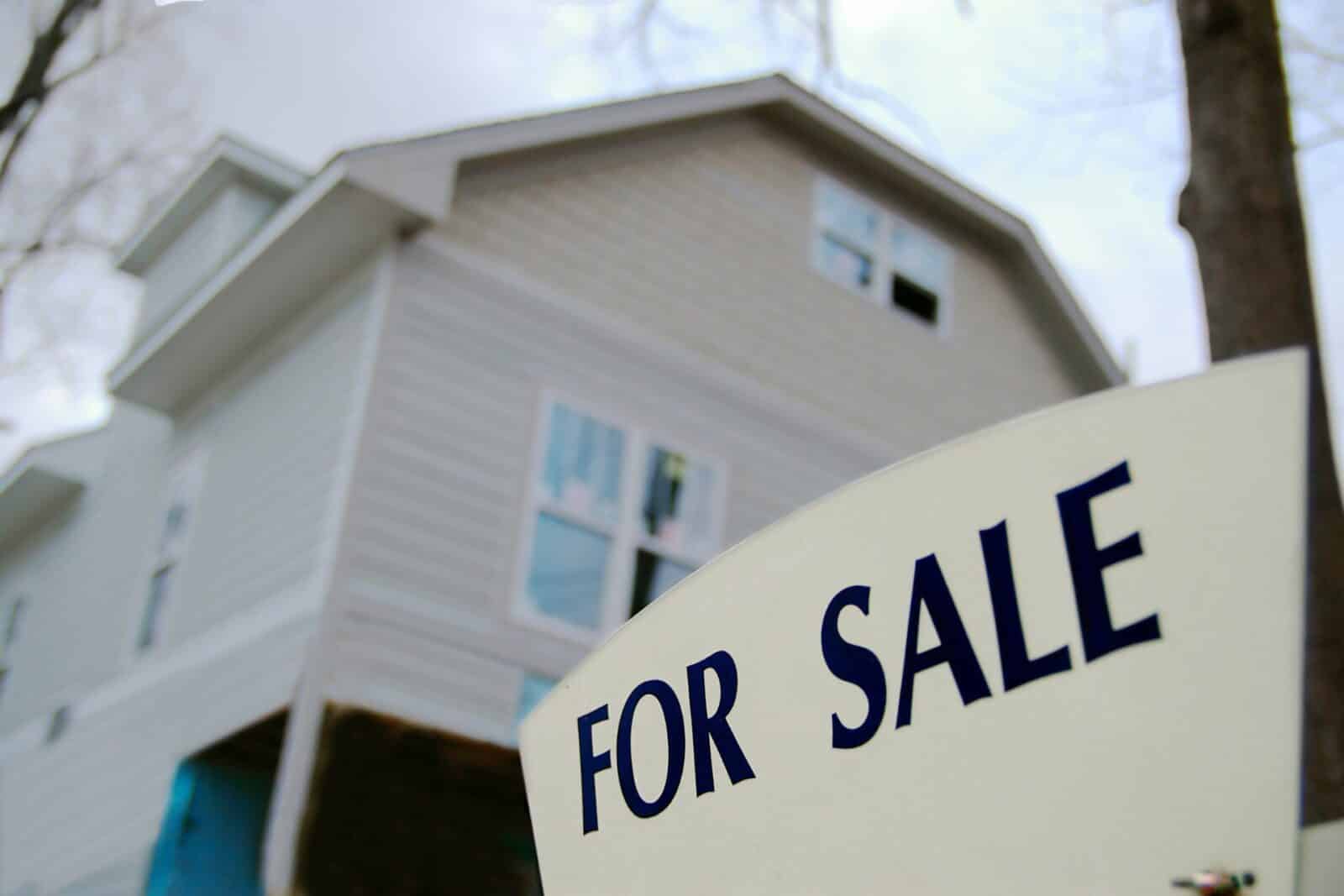Denver housing market challenges: Zillow’s latest report underscores the escalating financial demands placed on prospective homebuyers. Over the past decade, the price of homes in Denver has more than doubled, significantly altering the financial landscape for those looking to enter the real estate market.
Rising Costs: $100K No Longer Enough
A decade ago, a $100,000 salary in Denver could comfortably secure homeownership. However, Zillow’s recent findings indicate a paradigm shift, revealing that a staggering 70.5% increase in housing costs now demands an annual income of $173,000 for potential homebuyers.
Mortgage Payments Surge Since 2020
The report highlights a sharp rise in monthly mortgage payments for typical homes in the Denver metro area since January 2020. Assuming a 10% down payment, Zillow notes an 85.5% increase in mortgage payments over the past four years, reaching a monthly average of $3,615.
National Trend: U.S. Average Doubles Since 2020
Denver is not alone in facing these challenges. The U.S. housing market has experienced a similar trend, with the average mortgage payment on a typical home nearly doubling since 2020. Zillow’s data indicates that the national average income needed for comfortable homeownership has surged by 80%, exceeding $106,000.
Denver Outpaces National Averages: 120% Increase in Home Prices
Comparing Denver to cities like Washington, D.C., Portland, Oregon, Sacramento, California, and Riverside, California, the income required for homeownership in Denver is now at $173,000, emphasizing the city’s unique affordability struggles. Over the past decade, Denver homes have become 120% more expensive, outpacing national averages.
| Metropolitan Area* | Size Rank | Income Needed to Afford a Mortgage, January 2024 | Change in Needed Income Since January 2020 | Zillow Home Value Index (ZHVI), January 2024 | Monthly Mortgage Payment, 10% Down | Years to Save a 10% Down Payment |
| Pittsburgh, PA | 27 | $58,232 | $23,675 | $201,487 | $1,286 | 5.3 |
| Memphis, TN | 43 | $69,976 | $31,717 | $230,807 | $1,473 | 6.9 |
| Cleveland, OH | 34 | $70,810 | $30,227 | $211,712 | $1,351 | 6.0 |
| New Orleans, LA | 46 | $74,048 | $19,203 | $232,870 | $1,486 | 7.0 |
| Birmingham, AL | 50 | $74,338 | $31,875 | $246,805 | $1,575 | 6.7 |
| Oklahoma City, OK | 41 | $74,732 | $31,057 | $226,048 | $1,442 | 6.3 |
| Detroit, MI | 14 | $75,662 | $31,124 | $236,025 | $1,506 | 6.1 |
| Buffalo, NY | 49 | $76,884 | $34,744 | $242,435 | $1,547 | 6.5 |
| St. Louis, MO | 21 | $76,895 | $31,880 | $238,231 | $1,520 | 5.9 |
| Louisville, KY | 45 | $77,450 | $31,185 | $243,810 | $1,556 | 6.8 |
| Indianapolis, IN | 33 | $82,037 | $38,150 | $267,301 | $1,706 | 6.6 |
| Cincinnati, OH | 28 | $86,027 | $38,050 | $267,423 | $1,706 | 6.8 |
| Kansas City, MO | 31 | $92,896 | $40,742 | $289,290 | $1,846 | 7.2 |
| Houston, TX | 5 | $95,374 | $39,779 | $300,955 | $1,920 | 7.5 |
| San Antonio, TX | 24 | $95,767 | $38,307 | $283,161 | $1,807 | 7.5 |
| Columbus, OH | 32 | $95,821 | $43,405 | $297,637 | $1,899 | 7.3 |
| Milwaukee, WI | 40 | $100,822 | $42,613 | $321,037 | $2,049 | 8.5 |
| Virginia Beach, VA | 37 | $102,703 | $43,989 | $332,820 | $2,124 | 8.2 |
| Chicago, IL | 3 | $104,757 | $39,716 | $300,906 | $1,920 | 6.7 |
| Richmond, VA | 44 | $106,170 | $47,930 | $349,558 | $2,231 | 7.9 |
| United States | 0 | $106,536 | $47,490 | $342,941 | $2,188 | 8.4 |
| Philadelphia, PA | 7 | $109,257 | $47,837 | $343,102 | $2,189 | 7.5 |
| Jacksonville, FL | 39 | $109,271 | $51,617 | $348,665 | $2,225 | 8.2 |
| Charlotte, NC | 23 | $111,051 | $55,239 | $368,712 | $2,353 | 9.2 |
| Hartford, CT | 48 | $114,109 | $52,114 | $334,712 | $2,136 | 7.3 |
| Minneapolis, MN | 16 | $114,344 | $41,867 | $355,511 | $2,269 | 7.3 |
| Baltimore, MD | 20 | $114,348 | $44,063 | $367,861 | $2,347 | 7.6 |
| Atlanta, GA | 9 | $115,430 | $55,989 | $370,548 | $2,364 | 8.0 |
| Tampa, FL | 18 | $116,329 | $58,577 | $370,474 | $2,364 | 9.8 |
| Las Vegas, NV | 30 | $119,529 | $54,172 | $407,516 | $2,600 | 10.6 |
| Dallas, TX | 4 | $121,398 | $53,679 | $366,690 | $2,340 | 8.3 |
| Orlando, FL | 22 | $121,418 | $58,140 | $386,687 | $2,467 | 9.9 |
| Nashville, TN | 36 | $128,535 | $59,508 | $425,827 | $2,717 | 10.1 |
| Raleigh, NC | 42 | $130,472 | $62,410 | $430,562 | $2,747 | 8.7 |
| Phoenix, AZ | 11 | $131,322 | $65,017 | $447,074 | $2,853 | 9.9 |
| Providence, RI | 38 | $142,928 | $65,387 | $449,025 | $2,865 | 10.1 |
| Austin, TX | 29 | $149,267 | $65,144 | $451,322 | $2,880 | 8.8 |
| Miami, FL | 8 | $151,163 | $74,834 | $472,970 | $3,018 | 12.3 |
| Salt Lake City, UT | 47 | $154,455 | $72,592 | $523,832 | $3,343 | 10.6 |
| Portland, OR | 25 | $161,624 | $65,664 | $528,724 | $3,374 | 11.0 |
| Washington, DC | 6 | $166,551 | $64,078 | $539,116 | $3,440 | 8.2 |
| Sacramento, CA | 26 | $172,261 | $69,908 | $559,243 | $3,569 | 11.6 |
| Denver, CO | 19 | $172,704 | $71,338 | $566,692 | $3,616 | 10.7 |
| Riverside, CA | 13 | $173,375 | $81,676 | $563,468 | $3,595 | 12.6 |
| Boston, MA | 10 | $205,253 | $86,967 | $650,890 | $4,153 | 11.6 |
| New York, NY | 1 | $213,615 | $78,696 | $627,944 | $4,007 | 12.9 |
| Seattle, WA | 15 | $213,984 | $94,163 | $697,824 | $4,453 | 12.2 |
| San Diego, CA | 17 | $273,613 | $131,018 | $902,199 | $5,757 | 16.9 |
| Los Angeles, CA | 2 | $279,250 | $121,457 | $918,247 | $5,859 | 19.4 |
| San Francisco, CA | 12 | $339,864 | $119,614 | $1,104,853 | $7,050 | 16.0 |
| San Jose, CA | 35 | $454,296 | $191,071 | $1,493,255 | $9,528 | 18.8 |
Table based on the minimum income required to afford a mortgage in January 2024, as per Zillow.
Wage Stagnation: Homeownership Costs Outpace Income Growth
Zillow’s findings align with reports indicating that wages in the U.S. are struggling to keep pace with housing costs. The Common Sense Institute of Colorado reported that homeowners in the Denver metro area needed to work 114 hours to pay a mortgage in 2023, marking a significant 172.3% increase from the 42 hours required in 2013. Despite an 18% increase in the cost of owning a home since 2022, wages have only grown by 6%.
The growing disparity between housing costs and income raises concerns about the accessibility of homeownership, not just in Denver but across the nation. As the housing market continues to evolve, addressing these affordability challenges becomes crucial for fostering sustainable real estate opportunities for all.
Related posts:
 Affordable Rental Provider Repays $710K to Arlington County
Affordable Rental Provider Repays $710K to Arlington County
 Reduce Your Environmental Footprint: Simple Water Conservation Tips for Your Home
Reduce Your Environmental Footprint: Simple Water Conservation Tips for Your Home
 10 Precautions to Stay Safe During a Home Renovation
10 Precautions to Stay Safe During a Home Renovation
 Surge in US Housing: A Close Look at the November 2023 Boom
Surge in US Housing: A Close Look at the November 2023 Boom
 Seattle Fort Lawton Housing Plan Revision: A New Vision for Affordable Living
Seattle Fort Lawton Housing Plan Revision: A New Vision for Affordable Living




